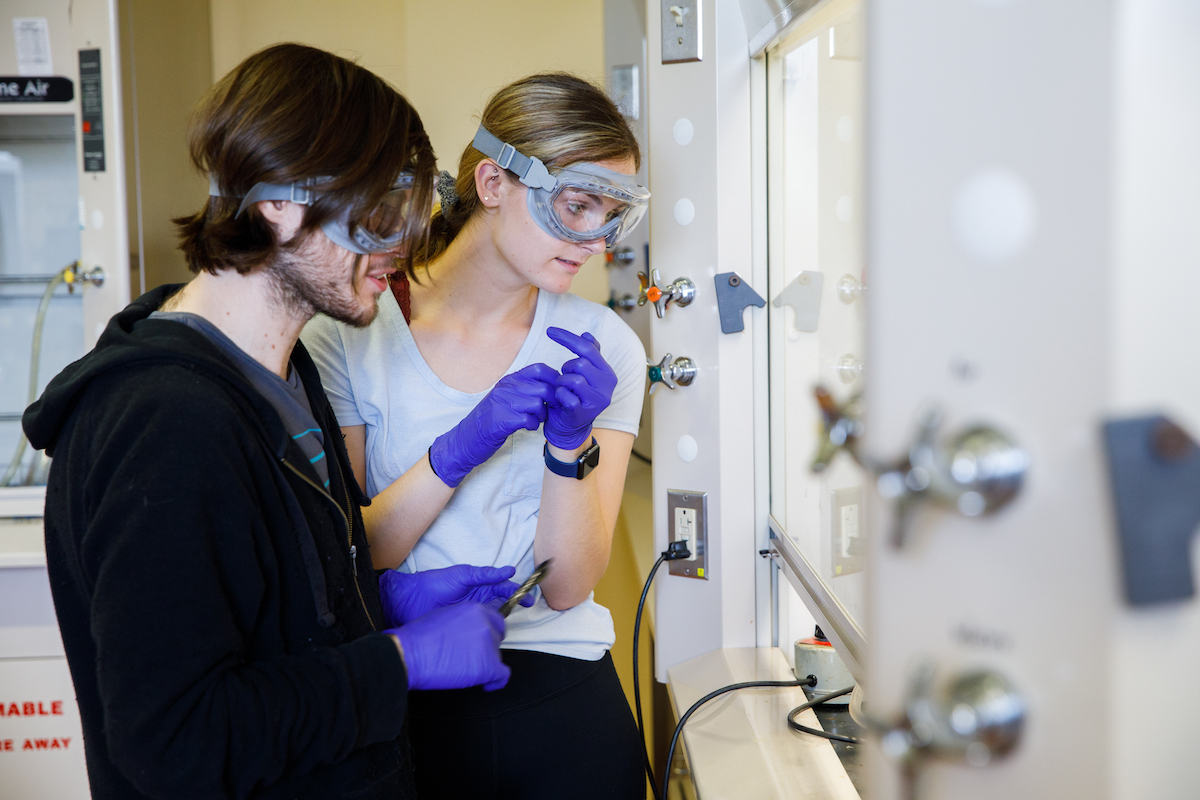Earth Science Major and Minor
Examine how life evolves, how minerals develop, and how landscapes shift. From the deep structure and tectonics of the Earth to microscopic traces of ancient life, use evidence from the past to understand how we can sustain our environment for the future.
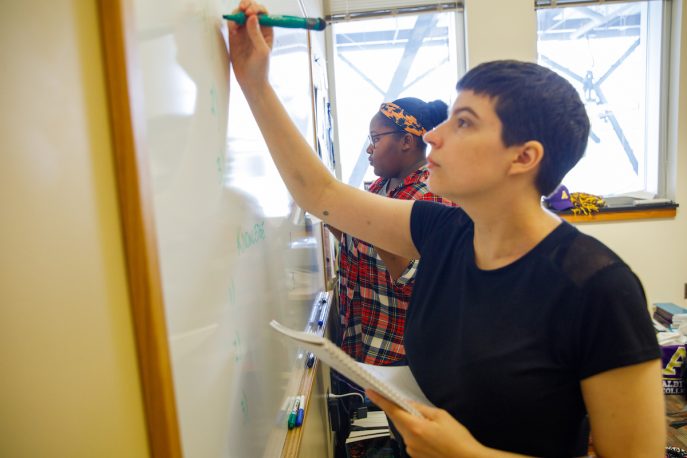
Why Study Earth Science at Albion?
We designed our Earth science major for students who begin the major in the second semester of their sophomore year or later or take it in addition to another major. You’ll follow a similar curriculum to our geology major, exploring your interest in our Earth in combination with other fields of study.
You’ll benefit from small classes and a supportive community of faculty and peers, developing keen analytical, visual, creative, and research skills that you apply to everything you learn. You’ll work closely with our faculty on active research in the field, in a lab, doing computational analyses, and contributing to scientific publications. And your study will take you to different landscapes and continents: from Wyoming and Hawaii to the Appalachian Mountains and Sweden to the Kalamazoo River right on campus.
What Will You Learn as an Earth Science Major or Minor?
You'll study the geological processes that create landscapes and ocean basins, and learn how the world’s oceans, atmosphere, and climate interact with one another.
You'll learn to analyze fossils and rock samples in our labs to understand evolving environments and life forms on Earth through time.
You’ll use your broad liberal arts foundation to contextualize your knowledge of the natural world, undertake and present field and/or lab research in an area of your choosing, and develop the skills necessary to succeed in your future career.
Teacher Certification with a Earth Science Major
Interested in teaching? Pair your Earth Science major (or minor) with an Education Concentration to be eligible for your Michigan Department of Education teaching certificate.
Highlights
Field Opportunities
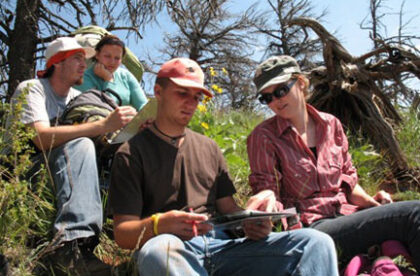
As a geology major, nature is your classroom. With the support of our generous alumni, we subsidize our field trips so all can participate in our field programs. We offer both annual regional geology field trips and a biennial five-week field camp in the Rockies, along with local field labs and independent research in diverse locales. In classes, you will venture to the nearby Kalamazoo River to sample its waters, investigate ancient sedimentary environments near Lansing, and evaluate the glacial landforms of southern Michigan.
Internships
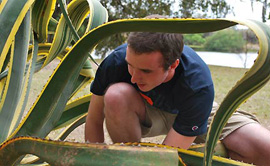
Spend a semester or summer gaining real-world experience. Our students have interned at state and local government agencies, museums, national parks, Los Alamos National Laboratory, private companies, and nonprofit organizations.
Research
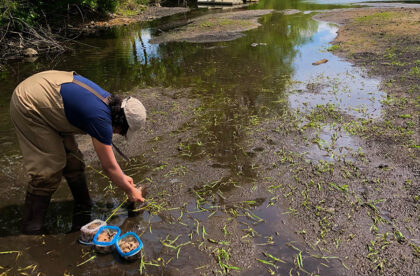
Research is a fundamental part of the Albion geology learning experience. You will have opportunities to undertake field and lab research in your classes, spend a semester or summer working on independent research in collaboration with faculty members, write a senior thesis, and launch your graduate education or career by attending a national geology conference with the support of our endowed Lawrence D. Taylor Undergraduate Geology Research fund.
Laboratories
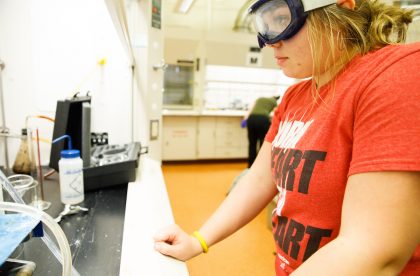
Get hands-on experience in our cutting-edge research facilities. Our science complex includes state-of-the-art teaching and research laboratories; extensive mineral, fossil, rock, and map collections; field sampling and surveying equipment; water chemistry analytical instruments, and a geology shop for sample preparation. You will learn how to investigate rocks and fossils under the microscope and assess the quality of natural waters using cutting-edge laboratory benchtop equipment.
Careers & Outcomes
Employment of geoscientists is projected to grow 5 percent from 2019 to 2029, faster than the average for all occupations, according to the U.S. Bureau of Labor Statistics. The need for energy, environmental protection, and responsible land and resource management is projected to spur demand for geoscientists in the future. Our graduates have been employed by research institutes, state and national geological surveys, universities and colleges as geology professors and research scientists, and secondary schools as earth science teachers. Below are examples of some of the professions our students choose, as well as graduate programs our students have recently attended.
Job Titles
- Environmental Consultant
- Consulting Geologist
- Mine Geologist
- Geotechnical Engineer
- Hydrographic Surveyor
- Hydrogeologist
- Meteorologist
- State-certified Professional Geoscientist
- Mud Logger
- Field Assistant
- Engineer
- Park Ranger
- Museum Collections Manager
- Science Outreach and Education
- Careers with government agencies: USGS, EGLE, USFW, USFS, BLM, NPS, and DEQ
Graduate Programs
- Arizona State University
- Bowling Green State University
- Indiana University Purdue University at Indianapolis
- Michigan State University
- New Mexico Tech
- Texas A&M
- The Ohio State University
- The University of Chicago
- University of Alberta
- University of Iowa
- University of Maryland
- University of Michigan
- University of Nebraska, Lincoln
- University of Oregon
- University of Wisconsin
- Washington State University
- Wayne State University
- Western Michigan University


